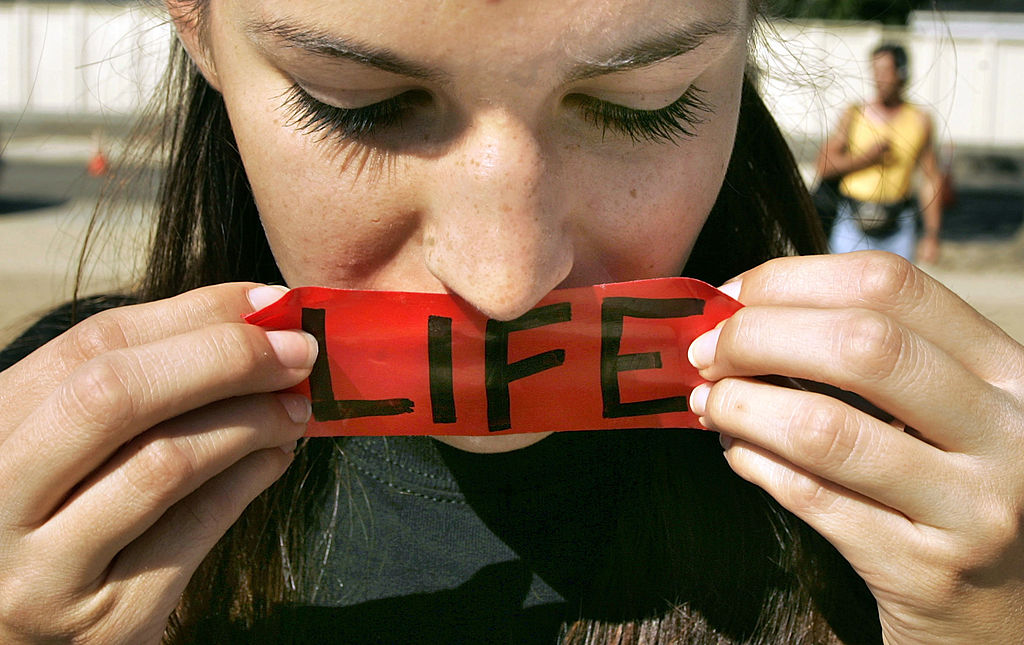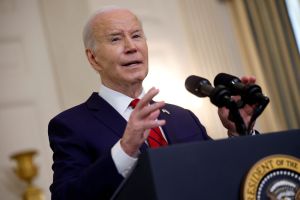At the conservative Christian schools I attended from kindergarten through the end of undergrad, I became familiar with two types of believers: the knuckle-draggers and the nuance-mongers.
The knuckle-draggers didn’t swear or drink. They watched dumb faith-based movies like God’s Not Dead. Secular music was suspect. Any engagement with the products of mainstream culture was accompanied by a humorless and formulaic discussion of how said opus fit into a “Christian worldview.” And when election time rolled around, they didn’t have to think twice. Only one issue mattered. Democrats wanted to kill babies, so voting anything other than a straight GOP ticket was out of the question.
Then there were the nuance-mongers, who were eager to prove that they weren’t like those Christians. They weren’t averse to F-bombs or Irish Car Bombs. They liked Scorsese and Tarantino. They read cool, edgy stuff like Kerouac and Camus and A Clockwork Orange. They were pro-life, of course, and they generally leaned Republican. But as a theoretical matter, voting a straight ticket every time was for squares who watched Fox News.
Then came the 2016 election. The nuance-mongers wrote long, soul-searching Facebook posts about how supporting an immoral candidate like Trump would “hurt our witness.” They brought up immigration and healthcare policy and racial reconciliation. They explained at great length that to be truly pro-life, you had to accept the majority of the Democratic Party platform. They worried about creeping authoritarianism. And in the end, they pulled the lever for Hillary.
I know because I was one of them.
I didn’t vote for Trump in 2016. In fact, I voted for Hillary. Not because I liked her, but because I thought Trump would destroy the Republican Party for a generation and felt sure Hillary would be a one-term president. I also wanted to be seen as a decent and intellectual person, not as a hillbilly cultist. I wanted to be able to listen to NPR and feel like part of the club.
Three circumstances rescued me from that path of destruction. First, I spent some time in a Facebook group for students and alums who’d drifted to the left, where I realized what insufferable bullies wokeness turns people into. I began to realize that unless I submitted fully to progressive dogma — something that even at my most “open-minded” I was never willing to do — I’d never be truly accepted by them. Second, I started grad school at Georgetown University, where I experienced firsthand the censorious madness overtaking our institutions. Third, I discovered that traditionalism is the truest form of rebellion, and I made friends who’d arrived at the same conclusion. We all drink beer and listen to Kendrick Lamar, but we’ve drifted toward Rome and Constantinople, not toward progressive evangelicalism or the queer-affirming mainline.
Unfortunately, many of the nuance-mongers never found that off-ramp. Between 2016 and 2020, they shared “Drumpf” memes. They read thinkpieces about the dangers of “Christian nationalism.” They attended BLM rallies and pride parades. They read Jemar Tisby’s The Color of Compromise and Kristin Kobes Du Mez’s Jesus and John Wayne. And in 2020, they voted for Joe Biden, for a return to kindness and normalcy.
So much for their rebellion. Once, when they were lost in the dark forest of fundamentalism, they believed everything their pastor told them. Now, having achieved enlightenment, they believe everything Hollywood, CNN, the universities, and the Fortune 500 tell them. People who vote straight Republican, they’ve learned, are troglodytes, but people who vote straight Democrat (aside from the occasional bone thrown to a Larry Hogan or a Chris Sununu) are wonderfully open-minded.
It’s hard to blame them. If you operate within the parameters we’ve been given, within the Overton Window as determined by legacy media, then it’s hard to come to any other conclusion. The playing surface printed on the game board looks fair. It’s easy to overlook that the board itself isn’t level.
The purpose of nuance and dialogue is never to increase mutual understanding. It’s to pull you further to the left. The goal is not to question accepted orthodoxies, but to bring uncooperative social elements under the umbrella of state ideology.
Rod Dreher has made a similar point about invitations to “dialogue” between theologically liberal and theologically conservative elements within Christian denominations. His point is simple: it’s a trap. When conservatives control the denomination, the liberals — who want to ordain women and gays, abandon the traditional sexual ethic, and deconstruct the historic dogmas — beg for dialogue. When the liberals gain power, they hollow out the religion and wear its skin like Buffalo Bill in Silence of the Lambs. Dialogue is no longer on offer. The vanquished conservatives are fundamentalist bigots, after all. It would be wrong to give them a platform. Better to persecute them until they schism, as happened with the Anglican Church in North America in 2009 and the Global Methodist Church earlier this month.
The only way to resist this leftward drift is to make what competitive debaters call a kritik, to question the framing of the argument. Anyone who wishes to avoid nuancing himself into blind conformity must reach back beyond the Enlightenment liberal consensus and re-open questions about politics and culture that most people consider settled.
This is why evangelicals seem especially prone to going squish. Catholics seeking greater depth can draw on Augustine, Aquinas, Bossuet, Pascal, Newman, Thomas Merton, Dorothy Day, Flannery O’Connor, Walker Percy, René Girard, and Charles Taylor. Their philosophical, theological, and artistic tradition spans cultures and centuries. Evangelicals weary of Francis Chan and the Left Behind novels have fewer options. Intellectual comes to be synonymous with liberal. When you accept the establishment’s rules, nuance only pulls in one direction.
And thank God for the knuckle-draggers who resisted that pull, who knew instinctively that the mass slaughter of the unborn was our great national sin and refused to allow sophistry to sway them from that conviction. Trump’s demolition derby political style may have appealed to the disaffected white working class, especially those for whom moral rectitude and family values had become anachronisms. But he’d never have become president without millions of mild-mannered church-goers who held their noses and voted for him because he’d appoint pro-life justices.
Now, thanks to them, Roe is about to be overturned.


















